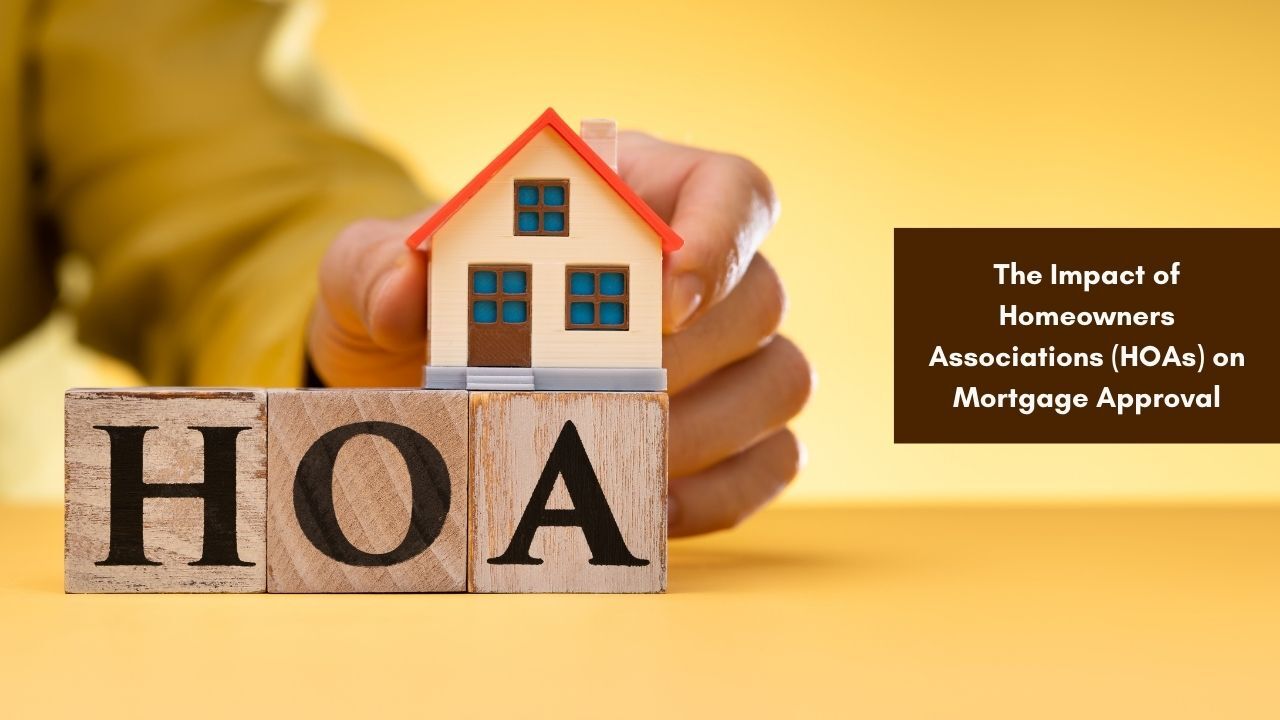The Impact of Homeowners Associations (HOAs) on Mortgage Approval
 When purchasing a home in a community with a Homeowner’s Association (HOA), it’s important to understand how this organization can impact your mortgage approval. While HOAs provide benefits like maintaining neighborhood amenities and enforcing community standards, they also add financial obligations that lenders consider when evaluating your loan application.
When purchasing a home in a community with a Homeowner’s Association (HOA), it’s important to understand how this organization can impact your mortgage approval. While HOAs provide benefits like maintaining neighborhood amenities and enforcing community standards, they also add financial obligations that lenders consider when evaluating your loan application.
How HOA Fees Affect Mortgage Qualification
Mortgage lenders assess a borrower’s total debt-to-income ratio (DTI) to determine affordability. Since HOA dues are a required expense for homeowners in these communities, lenders include them when calculating your monthly obligations. Even if you meet standard mortgage qualifications, high HOA fees could push your DTI beyond acceptable limits, affecting loan approval.
HOA Financial Health Matters
Lenders also evaluate the financial health of the HOA when approving mortgages for condos or townhomes. A well-managed HOA with adequate reserves is seen as a lower risk, while an HOA struggling with debt or maintenance issues can raise red flags. Some key factors lenders consider include:
- Reserve Funds: HOAs should have sufficient reserves to cover repairs and maintenance without relying on frequent special assessments.
- Delinquency Rates: If too many homeowners in the community are behind on their HOA dues, it may indicate financial instability.
- Pending Litigation: If the HOA is involved in lawsuits, lenders may hesitate to approve loans in that community.
Loan Type Considerations
Certain loan programs have specific HOA requirements. For example:
- FHA Loans: The condo community must be FHA-approved for borrowers to qualify for an FHA mortgage.
- VA Loans: VA loans also require HOA approval, ensuring financial stability and compliance with VA guidelines.
- Conventional Loans: While conventional lenders have fewer restrictions, they still review the HOA’s financial health and legal standing.
Special Assessments and Their Impact
In addition to regular HOA fees, homeowners may be required to pay special assessments for unexpected repairs or improvements. Lenders may take these into account when assessing affordability, as they can significantly increase monthly expenses. If an HOA is planning a large assessment, it could impact a buyer’s ability to qualify for a mortgage.
What Borrowers Should Do Before Buying in an HOA Community
If you’re considering a home in an HOA-governed community, take these steps to avoid surprises during the mortgage process:
- Review HOA Documents: Request the HOA’s financial statements, reserve studies, and meeting minutes to assess financial stability.
- Understand Fee Structures: Ask about current HOA dues, any pending increases, and potential special assessments.
- Check Loan Program Eligibility: If using an FHA or VA loan, ensure the community meets lender approval requirements.
While HOAs can provide valuable benefits, they also come with financial responsibilities that impact mortgage approval. Before committing to a home in an HOA community, work with your lender to ensure the fees fit within your budget and loan qualifications. By doing your due diligence, you can avoid surprises and make an informed decision about your home purchase.